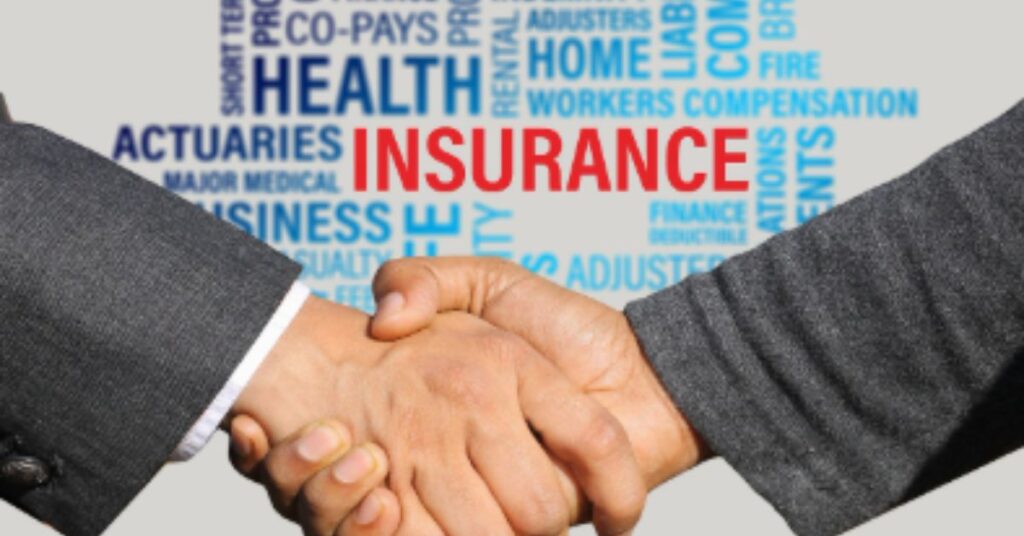Insurance is not just a policy but a financial safety net that saves you from suddenly dealing with challenging situations, and gives you guidance on how to deal with and tackle them. Life is unpredictable, for example road accident, medical emergencies and sometimes property loss or savings can wipe out your savings in a flash. periodically, you may feel helpless and think that you can’t stand in your life, everything is finished. In this case, if you don’t have any insurance, you could face financial problems that may take up much time to recover from your life again.
But choosing the right insurance strategies is not easy or simple. Many people face complex situations, such as hidden costs and policies that sometimes do not meet their needs. In the end, this leads to wasted money, and when needed, challenges are not handled properly.
How can you ensure that your policies are the best and right choice in this confusion? First of all, understanding the key benefits of insurance, such as economic stability, sense of security, and economic durability, can help you navigate complexities and choose the best plan according to your necessities.
What Is Insurance and Why Do You Need It?
Insurance is a financial safety plan that protects you from unexpected losses. It works like a shield when you face a big expense, like a medical emergency, car accident, or home damage, insurance helps cover the cost so you don’t have to pay everything yourself.
Without insurance, a single accident or illness can wipe out your savings, leaving you struggling to recover. Many people don’t realize the risk until it’s too late. Imagine getting into a car crash and having to pay thousands for repairs and hospital bills, or losing your home to a fire with no way to rebuild.
Insurance gives you peace of mind by ensuring that when life throws challenges your way, you have financial support to handle them without stress or debt.
Understanding Different Types of Insurance
1- Health Insurance: Why It’s Essential
Medical emergencies can happen anytime, and hospital bills can be shockingly expensive. Without health insurance, a sudden illness or accident can drain your savings or leave you in debt. That’s why having the right health insurance is crucial; it protects you from high medical costs and ensures you get the care you need without financial stress.
Key Benefits of Health Insurance:
- Covers Medical Emergencies & Hospitalization: Whether it’s an accident, surgery, or critical illness, your insurance takes care of the bills so you don’t have to worry.
- Protects Against Rising Healthcare Costs: Medical treatments are getting more expensive, but insurance helps cover these costs, saving you from a financial burden.
- Provides Preventive Care & Wellness Benefits: Many plans offer free checkups, vaccinations, and screenings to keep you healthy and catch problems early.
2- How to Choose the Best Health Insurance:
Look for a plan that covers hospital stays, doctor visits, and medicines while keeping premiums affordable. Compare policies, check hidden costs, and choose one that meets your health needs.
Life Insurance: Why It’s a Must for Financial Security
Life is unpredictable, and no one wants to leave their loved ones struggling after they’re gone. Without life insurance, your family could face financial hardships paying off loans, managing daily expenses, or covering education costs without your support. Life insurance ensures that even if something happens to you, your loved ones have the financial stability to move forward.
Types of Life Insurance:
- Term Life Insurance: Covers you for a set period (e.g., 10, 20, or 30 years). It’s affordable and ideal for those who want high coverage at a low cost.
- Whole Life Insurance: Provides lifelong coverage with a cash value that grows over time. It’s more expensive but offers savings benefits.
Who Should Get Life Insurance & When?
If you have dependents, a spouse, children, or aging parents, you need life insurance. The best time to invest is as early as possible when premiums are lower. Don’t wait until it’s too late, secure your family’s future today.
3- Car Insurance: Why You Need It
A car accident can happen anytime, and repairs or medical bills can be expensive. Without car insurance, you might have to pay thousands out of pocket for damages, injuries, or even legal costs. Car insurance protects you financially by covering these expenses, so you don’t have to worry about sudden costs after an accident.
Types of Car Insurance Coverage:
- Liability Insurance: Covers damages and injuries you cause to others in an accident.
- Collision Insurance: Pays for repairs to your car after an accident.
- Comprehensive Insurance: Covers theft, vandalism, and damages from natural disasters.
- Uninsured/Underinsured Motorist Coverage: Protects you if the other driver has little or no insurance.
4- How to Get Affordable Car Insurance:
Compare quotes from different companies, choose a higher deductible to lower premiums, and ask for discounts based on safe driving or bundling policies. A little research can help you find the best coverage at the lowest price.
Home Insurance: Why Every Homeowner Needs It
Your home is one of your biggest investments, but what if a fire, storm, or burglary destroys everything? Repairing or rebuilding a home is expensive, and without home insurance, you’d have to pay for everything yourself. Home insurance protects you from financial loss by covering damages, theft, and even temporary housing costs if your home becomes unlivable.
What Does Home Insurance Cover?
- Natural Disasters & Fire: Helps pay for repairs or rebuilding after storms, floods, earthquakes, or fires.
- Theft & Vandalism: Covers stolen or damaged belongings, so you don’t have to replace them with your own money.
- Property Damage & Liability: Pays for damages caused by accidents, like a tree falling on your roof or a guest getting injured on your property.
How to Choose the Right Home Insurance Plan:
Look for a policy that covers your home’s value, personal belongings, and additional living expenses if you’re displaced. Compare providers, check deductibles, and ensure you have enough coverage to fully protect your home.
5- Travel Insurance: Why You Shouldn’t Travel Without It
Traveling is exciting, but what if your trip gets canceled, you lose your luggage, or you face a medical emergency in a foreign country? Without travel insurance, you could end up paying thousands for unexpected expenses. A missed flight, stolen passport, or sudden illness can ruin your trip and leave you in financial trouble. Travel insurance protects you from these risks, giving you peace of mind while you explore the world.
What Does Travel Insurance Cover?
- Trip Cancellations & Delays: If your trip is canceled due to emergencies, bad weather, or airline issues, you get reimbursed.
- Medical Emergencies: Covers hospital bills, doctor visits, and even emergency evacuations in case of serious health issues.
- Lost or Stolen Luggage: Pays for lost baggage and stolen valuables like passports, cameras, or laptops.
- Accidents & Liability: If you get injured or accidentally cause harm to someone else, insurance helps cover the costs.
6- Best Travel Insurance Options:
Look for a plan that covers medical expenses, trip cancellations, and baggage loss. Compare providers, check reviews, and choose one that fits your destination and travel needs. A small investment in travel insurance can save you from big financial headaches.
Benefits of Having Comprehensive Insurance
Life is full of unexpected risks natural disasters, theft, accidents, and damage to your valuable assets. Comprehensive insurance provides broad protection, covering multiple risks in a single policy. It ensures that you’re not left struggling with heavy financial losses when the unexpected happens.
What Is Comprehensive Insurance?
Comprehensive insurance is a policy that offers extensive coverage beyond basic insurance. Whether it’s your car, home, or business, this type of insurance covers damages caused by accidents, theft, fire, natural disasters, and even vandalism.
How Comprehensive Coverage Protects You:
- Covers Multiple Risks: Unlike standard insurance, it protects against various threats, including non-collision car damage, home destruction, or unexpected business losses.
- Reduces Out-of-Pocket Costs: Helps pay for repairs, replacements, and legal fees, saving you from large expenses.
- Provides Peace of Mind: Knowing you’re covered for a wide range of situations helps you stay financially secure.
Who Should Opt for Comprehensive Insurance?
Anyone with valuable assets should consider comprehensive insurance. Homeowners, car owners, business owners, and travelers benefit from this extra layer of protection. If you live in an area prone to natural disasters or own expensive property, this coverage is a smart investment.
7- Standard vs. Comprehensive Insurance:
- Standard Insurance: Covers only basic risks, such as liability in car accidents or fire damage to a home.
- Comprehensive Insurance: Covers a wide range of risks, including theft, weather-related damage, and unforeseen events beyond basic coverage.
Comprehensive insurance is ideal for those who want complete financial protection, ensuring they’re covered no matter what life throws their way.
Factors to Consider When Choosing an Insurance Plan
Choosing the right insurance plan can be confusing. Many people end up with policies that don’t cover enough when they need it most or pay high premiums for benefits they rarely use. To avoid financial stress, it’s important to understand what to look for before buying a policy.
1. Coverage Limits: How Much Do You Need?
If your coverage limit is too low, you might have to pay out of pocket for major expenses. Whether it’s health, car, or home insurance, make sure your policy covers worst-case scenarios without leaving gaps.
2. Premium Costs vs. Coverage Benefits
A cheaper policy might save you money now, but if it doesn’t offer enough coverage, you could end up paying more later. Compare different plans to find a balance between affordability and protection.
3. Deductibles, Co-Pays, and Hidden Fees
Many policies come with costs you don’t notice until you file a claim. A high deductible means you’ll have to pay more before your insurance kicks in. Check for hidden fees and co-pays that could add up over time.
4. Claim Process and Ease of Settlement
Some insurance companies make it difficult to file claims, leading to delays and frustration. Choose a provider with a smooth, quick, and hassle-free claim process. Read reviews to see how they handle payouts.
5. Policy Exclusions: What’s NOT Covered?
Many people assume they’re fully protected, only to find out later that their insurance doesn’t cover certain damages or situations. Always check exclusions to avoid surprises when you need help the most.
Taking the time to compare policies and understand these factors can save you from costly mistakes and ensure you get the best coverage for your needs.
Common Mistakes to Avoid When Buying Insurance
1. Choosing the cheapest policy without checking coverage
Many people go for the lowest price, only to realize later that the policy doesn’t cover what they need. A cheap policy might leave you paying out of pocket when you need help the most.
2. Ignoring policy exclusions and hidden costs
Not everything is covered, and some policies have hidden fees. If you don’t read the fine print, you might be shocked when a claim gets denied or unexpected charges appear.
3. Not comparing different insurance providers
Sticking to the first offer you find can cost you. Different companies offer different benefits, coverage, and prices. Without comparing, you might miss out on a better deal or stronger protection.
4. Delaying insurance purchase until it’s too late
Waiting until a health issue, accident, or emergency happens can be a big mistake. Insurance is meant to protect you before something goes wrong. If you delay, you might not qualify for coverage or have to pay much higher premiums.
How to Find the Best Insurance Deals
1. Compare policies from different providers
If you buy insurance without comparing options, you might end up paying more for less coverage. Different companies offer different benefits, so always check multiple policies to find the best value for your money.
2. Use discounts and bundle multiple insurance plans
Many people miss out on savings because they don’t ask about discounts. You can lower your costs by bundling multiple policies like car and home insurance under one provider. Always check for special offers before buying.
3. Negotiate better premiums with insurance companies
Most people don’t realize they can negotiate insurance rates. If you have a good driving record, a healthy lifestyle, or no previous claims, ask for a lower premium. Sometimes, just asking can save you money.
4. Read customer reviews and check claim settlement ratios
A cheap policy is useless if the company delays or denies claims. Before buying, check customer reviews and claim settlement ratios to see how reliable the insurer is. A company with a bad reputation for handling claims can cause you stress when you need help the most.
Best Insurance Companies and Their Top Policies
1. Overview of Top-Rated Insurance Providers
Choosing the right insurance company can be stressful. Some companies have great policies but bad customer service, while others offer low prices but poor claim support. It’s important to pick a provider known for fair pricing, good coverage, and hassle-free claims.
2. Comparison of Their Best Policies (Health, Car, Life, etc.)
Not all policies are the same. Some health insurance plans don’t cover major treatments, some car insurance policies exclude key damages, and some life insurance plans have confusing terms. Comparing policies helps you find the best coverage for your needs without overpaying.
3. Pros and Cons of Each Company’s Offerings
Every insurance company has strengths and weaknesses. Some offer low prices but slow claim processing, while others provide excellent coverage but charge high premiums. Knowing the pros and cons helps you avoid surprises when you need to file a claim.
FAQs
Q1. How much insurance do I need?
Enough to cover major risks without overpaying too little leaves gaps, too much strains your budget unnecessarily.
Q2. Can I switch my insurance provider?
Yes, but check cancellation fees, refund policies, and ensure new coverage starts before canceling to avoid a coverage gap.
Q3. What happens if I miss an insurance payment?
You may face late fees, policy cancellation, or denied claims—always check your grace period and contact your provider immediately.
Q4. How do I make a successful insurance claim?
Document everything, file promptly, follow the insurer’s process, and keep records to avoid claim delays or denials.
Conclusion
Choosing the right insurance is not a big deal it’s about complete security and your future. The wrong can put you in tough financial strain, disputed claims, or coverage gaps at your time of greatest need.that way it’s very important to choose a plan that protects you and its helpful.before buying, carefully view the polices and review thoroughly.A cheaper option might not cover what you need, and an expensive one might have unnecessary features. Check customer reviews, claim settlement ratios, and hidden fees to avoid future headaches. Don’t wait until it’s too late whether it’s health, car, or life insurance, the right policy can give you peace of mind. Start exploring the best insurance plans today, so you’re always prepared for life’s uncertainties.







